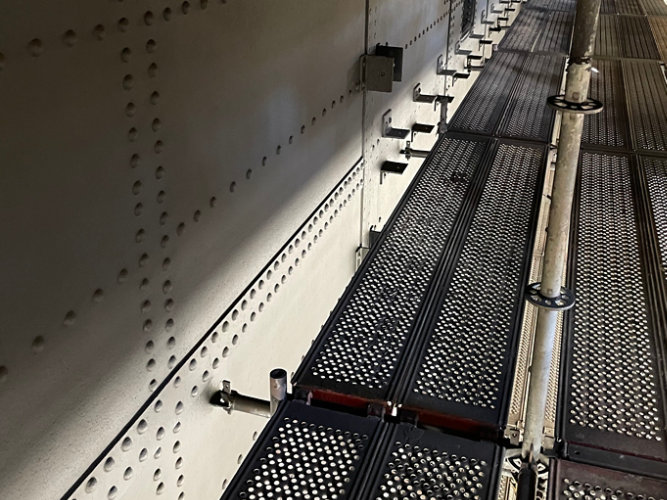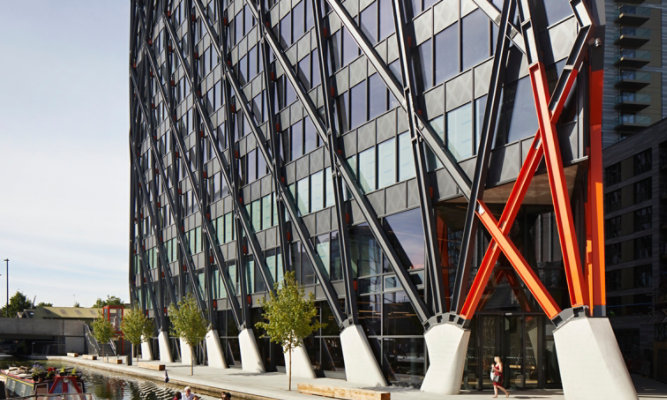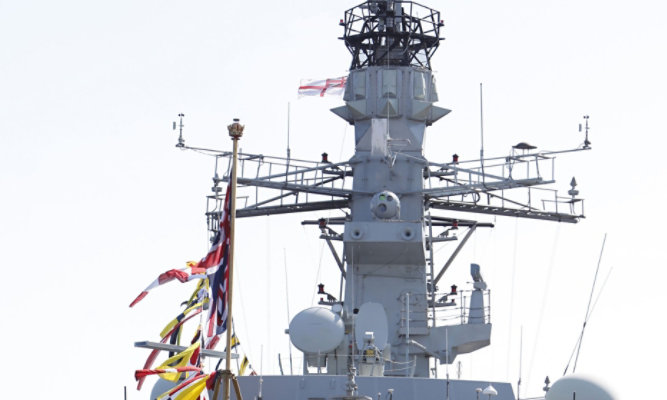Dura-Plate® and Acrolon® coatings chosen to protect 110 year old canal lock gate
In the aftermath of an accident, Sherwin-Williams was approached to provide a corrosion protection coating for the restoration of a lock gate at the Kiel Canal.

When a malfunction aboard the container feeder Akacia resulted in it striking a 110-year-old lock gate at the Baltic Sea entrance of the NOK (North Sea - Baltic Sea Canal), it caused extensive disruption and significant damage. Once repairs to the steelwork had been completed, Sherwin-Williams was tasked with providing a coating that would restore the lock gate to its former glory.
On 19th February 2018, the Portuguese flagged container feeder Akacia was on its way from Bremerhaven to St Petersburg and preparing to enter the Neue Südschleuse in order to exit the NOK. However, eyewitness reports indicated that the ship suddenly accelerated as it approached the lock gate, reaching a speed of around nine knots. The ship’s master dropped both anchors in an attempt to slow down, but could not stop the 149m, 11,000 gross register tonnage (GRT) vessel from striking the lock gate.
Cause and effect
The ship’s hull was breached and it suffered minor water ingress from the collision, but it was possible to detach the distressed vessel from the lock gate with the help of a tugboat. Since the damaged lock gate was unable to adequately seal the chamber, the water level rose to that of Baltic Sea and the ship could only leave the lock chamber when the water level had stabilised.
‘Once the vessel has been moved, it was clear that the lock gate had sustained serious damage, with repair costs estimated at several million Euros,’ explains Axel Petrikat, Marketing Product Manager at Sherwin-Williams. ‘Before work could begin, the steel debris had to be removed by divers. It was a dangerous operation, as any movement to the metal at the bottom of the lock could have caused the entire structure to collapse. Due to meticulous planning, the operation was carried out successfully and a detailed assessment of the damage was carried out, with surveys completed prior to the removal of the lock gate to a shipyard in Kiel for repair.’
A complex restoration process
The repair work was extensive and had to take into account a number of factors – not least of all the age of the lock gate. At 110 years old at the time of the accident, it was constructed using riveted steel with thousands of steel bolts, while the steel quality itself was different to from that which would be used today. This made corrosion protection difficult to implement, so extensive blast cleaning measures were necessary, with the blasted debris and old coatings collected and specially disposed of due to their toxicity.
The steelwork took almost two years to complete and during this time Sherwin-Williams was approached by the Federal Waterways Engineering and Research Institute (BAW), the Federal Waterways and Shipping Administration (WSV) and the Waterways and Shipping Office (WSA) to carry out a full complete corrosion protection coating project on the lock gate. Sebastian Fluegel, Area Sales Manager, FROSIO Inspector Level III: 4154, at Sherwin-Williams, comments, ‘We have worked extensively with the WSA Kiel-Holtenau over the last 18 years to provide coatings across the estate for new construction and renovation projects. Thanks to this experience, we were ideally placed to configure a solution using our range of high performance products.’
A long term solution fit for the future
Sherwin-Williams produces durable, long-lasting coatings that boast extended lifecycles, minimising the need for steelwork replacement – qualities that are especially beneficial in environments like lockgates or port installations. Once the new steelwork was completed, Sherwin-Williams and its approved applicator spent 18 months ensuring that the lock gate coating was completed to the highest standards.
The project comprised a total coating surface area of 18,000m² and asked to outline the products used, Sebastian Fluegel replied, ‘We applied one 70µm coat of Zinc Clad® R, which is a highly pigmented zinc rich primer based on epoxy resin. Importantly, it has a low solvent content according to the Protective Coatings Directive of the German Paint Industry Association. This was followed by two 250µm coatings of Dura-Plate® Poxicolor SW N, our new abrasion-resistant epoxy resin coating with a low solvent content and sustainable curing component. Finally, for the atmospheric loaded upper areas of the gate, a 80µm coat of Acrolon® EG-5 added another layer of corrosion protection and an aesthetically pleasing finish.’
Success story
Frauke Schmidt, project manager at the WSA Kiel-Holtenau, is delighted with the completed work and concludes. ‘Obviously, accidents like this are fortunately rare. That said, the damage to the lock gate was extensive, so we required partners of the highest calibre in order to restore it and make it fully operational again. Sherwin-Williams’ support throughout the process was invaluable. Thanks to its industry-leading products, we now have a lock gate with a coating that offers the best possible protection against damage and corrosion.’
Sherwin-Williams’ support throughout the process was invaluable. Thanks to its industry-leading products, we now have a lock gate with a coating that offers the best possible protection against damage and corrosion.
Discover More
Industry Expertise and Innovation
Explore customised solutions we deliver for customers to address their project and application challenges.
Technical Service
We're here to ensure your entire project is running smoothly and efficiently.
LEARN MOREProduct Lookup
Find out more about our innovative coatings for a variety of industries.
FIND A PRODUCT



